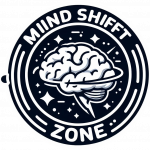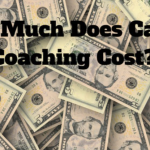Introduction: The Modern Corporate Landscape
As businesses continually evolve in this digital age, navigating the corporate landscape becomes more complex and multifaceted. Business leaders find themselves at the crossroads of technology, globalization, and rapidly changing market dynamics. To lead effectively and ensure organizational success, these leaders require more than just experience—they need ongoing development. This is where executive coaching proves invaluable.
What is Executive Coaching?
Traditional Versus Executive Coaching
While traditional coaching is aimed at fostering personal development and growth, executive coaching targets a different realm. It’s centered around enhancing leadership qualities and capabilities crucial for navigating the modern corporate maze. Executive coaching isn’t just about overcoming challenges; it’s about unlocking an executive’s full potential to lead more effectively.
The Core Elements
Personalized Learning: Tailored strategies to match an executive’s unique challenges and goals.
Result-oriented Growth: A focus on achieving tangible outcomes and measurable results.
Actionable Feedback: Feedback that can be directly applied for real-time improvements.
What Does an Executive Coach Do?
An executive coach is like an advisor that promotes leadership coaching and growth in a company’s teams or its aspiring leaders.
It’s a contracted professional that uses their business experience and knowledge of great leadership practices to maximise personal and professional development of an organisation’s management teams.
An executive coach can be instrumental to the success of a company’s teams since he or she will help concentrate a company’s development and improvement efforts. They give advice about how to focus their training and mentorship (and who to focus it on).
It can be a valuable resource to have a second set of eyes, from outside an organisation, to provide level-headed and objective advice.
That way, a coach helps a company to:
- Take stock of the current executive roles;
- Inform the company (at all levels) of the opportunity;
- Involve the right people, including stakeholders, partners, investors and clients;
- Design a tailored roadmap for success;
- Track and measure progress to increase performance;
- Remain accountable throughout the improvement process.
The Role of an Executive Coach
Skills of an Exemplary Coach
A proficient executive coach wears many hats. They are:
A Catalyst for Change: Prompting executives to challenge the status quo and embrace transformative change.
A Strategic Partner: Aligning with an executive’s vision and helping them craft and execute robust strategies.
A Proficient Listener: Discerning unspoken challenges and needs by paying attention to subtle cues.
An Effective Communicator: Providing clear insights and ideas that inspire action.
Ethical Considerations
In executive coaching, maintaining ethical integrity is paramount. Confidentiality, trust, and respect form the backbone of a fruitful coach-executive relationship.
Common situations that executive coaches face
Are you wondering when you should pick up the phone to talk with a coach about your company? There are two common scenarios that executive coaches commonly face. You probably fit into one of these two categories:
1. A company that has an existing but under-performing leadership team:
A company might face poor business decisions, wasted resources, disruptive company culture or even leaders that abuse their power and make a poor environment for their employees. How can this company make it right?
An executive or corporate coach helps identify what needs to change – whether that’s from a hiring perspective or a structural change or simply boosting the awareness, sensitivity and abilities of its leaders.
2. A company that is starting from scratch:
A company might have no clue how to pick the best leaders (whether by hiring or through a promotion). They might be lost about how to set up their own developmental or performance coaching plans for their managers.
How can a business develop an organisational structure that features high-performing leaders and promotes the long-term growth of the company? This commonly happens at a company’s growth stage, such as when an entrepreneur decides to convert their side-hustle business to their full-time occupation.
What is a soft skill?
Did you know that there are dozens of professional skills that can define the success of a leader? In one study, a list of 74 different leadership skills was used to take stock of the most important ones.
That’s a lot of different skills! On top of that, there are competing definitions of the same skills and the most sought-after ones can differ radically from company to company.
Most of them are considered soft skills, or skills that can’t normally be taught through formal or technical training programs. When it comes to the business world, most of the soft skills have to be learned on the job.
This is a case where an executive coach can come in and help. A coach can help identify what types of skills to look for and help create the right environment in your organisation to foster the essential ones in your leaders.
The typical soft skills that an executive coach can help bolster include:
– Self-awareness;
– Empathy;
– Professional intimacy;
– Presence;
– Communication;
– Ethics;
– Safety; and,
– Creativity.
As you can imagine, these types of abilities are not something that you can learn with a snap of your fingers. But a trained professional like an executive coach can bring you closer to using these skills as a top-performing leader would.
Why is executive coaching important?
The benefits of executive coaching are many. For starters, there is a personal development component, whereby a leader’s progress is accelerated. But there are implications for the organisation’s performance, too. That’s because there are many downstream effects of executive coaching.
Downstream effects are the impacts that are felt across the organisation, apart from the specific development that’s fostered in the teams and individuals. Even coaching specific to women leaders is proven to improve performance from lower-level employees to senior management, helping the overall state of the business.
For instance, the process can help identify standout candidates in an organisation that can be mentored and developed into high-performing stars, which is good for the long-term health of the company.
It can boost job satisfaction for those who work at the company. A better leadership team normally implies a better-performing and more successful organisation overall. Working on a well-functioning team is important for employee satisfaction and for adding meaning to the work they do.
The benefits of a great executive coaching program can even be felt for years to come since it can improve goal-setting (and achieving). That translates to more sales, more users and more customer satisfaction, depending on the business model or industry.
A successful executive coaching campaign can turn a mediocre company into a high-performing one that can attract the top talent in the future – thus creating a virtuous cycle. Success breeds success! And it can all start with a coach.
What It Takes to Become an Executive Coach?
Many ex-HR practitioners, retired executives, therapists, or consultants go into executive coaching.
But, coaching is an unregulated industry in most countries, so anyone can call themselves an executive coach.
Because of this, we have made sure that all of our coaches meet specific criteria. For someone to become an Upskill Coach, they need to have a coaching diploma or certification that’s certified by the European Mentoring and Coaching Council, the International Coaching Certification, or Association for Coaching.
Moreover, they need to have a minimum of 300 completed coaching hours and 6 years of leadership experience working with businesses, professionals, and public sector organisations.
Who Hires Executive Coaches?
Not so long ago, corporations hired executive coaches to help them “fix” executives that have been failing at their job. Today, most companies see executive coaching as an investment in their high potentials and top executives.
There is no longer a stigma to having an executive coach. In fact, in many places, having an executive has become a badge of honour.
While it is more common for the human resource department of a company to recommend an executive coach to an executive employee, business owners or CEOs can hire their own coaches.
A coach can greatly help executives that are getting groomed for larger roles or newly promoted executives that are facing some challenges (usually involving employee relationships). Executive coaches also get hired to help leaders resolve interpersonal conflicts and correct behavioural problems.
When To Hire an Executive Coach?
Organizations and individuals typically hire executive coaches during significant transitions, such as:
- Taking on a major leadership role.
- Navigating company mergers or acquisitions.
- Facing challenges that hinder organizational growth.
- Developing high-potential leaders.
How do I find an executive coach?
Finding the right executive coach involves:
- Identifying specific needs and objectives.
- Researching reputable coaching organizations.
- Seeking recommendations from peers.
- Interviewing potential coaches to determine compatibility and expertise.
Delving into the Psychology
At the core of executive coaching lies an intricate understanding of human behavior. Techniques from emotional intelligence, cognitive behavioral therapy, and positive psychology get interwoven to create a holistic coaching experience.
Debunking Executive Coaching Myths
Myth: Executive coaching is a remedy for performance issues.
Truth: While it can address performance challenges, its primary focus is on unlocking potential and fostering leadership growth.
Myth: The results of coaching are intangible and unmeasurable.
Truth: With the right benchmarks and evaluation methods, the impact of executive coaching can be quantified.
Conclusion
The realm of executive coaching is vast and ever-evolving. In the shifting sands of the modern corporate world, it stands as a beacon, guiding leaders towards excellence. Whether you’re a seasoned executive or an organization aiming to uplift its leadership cadre, diving into the world of executive coaching might be your next best move.









